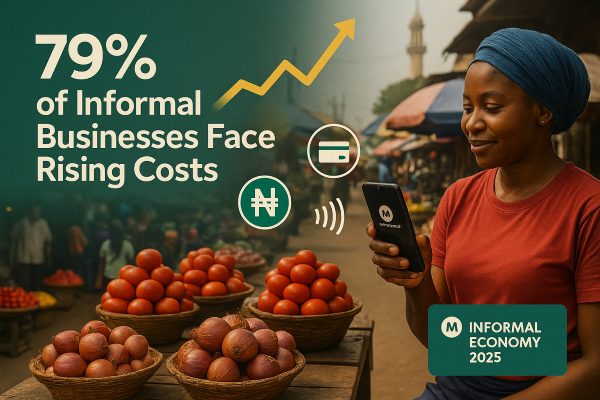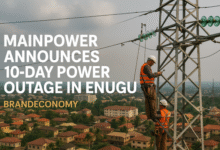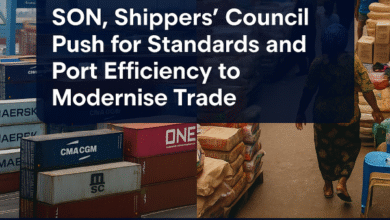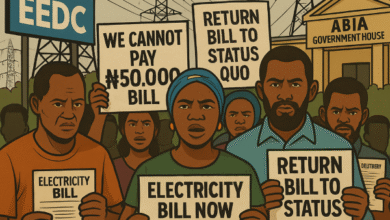79% of Informal Businesses Face Rising Costs Amid Naira Volatility — MoniePoint Report

Nigeria’s informal economy — the vast network of unregistered small enterprises powering local trade and livelihoods — is feeling the strain of macroeconomic headwinds. According to MoniePoint’s 2025 Informal Economy Report, nearly eight in every ten businesses (79%) in the informal sector have experienced a sharp rise in operating costs over the past year, driven by inflation, rising logistics expenses, and sustained currency depreciation.
The comprehensive study, unveiled in Abuja, offers a rare snapshot into the financial realities of Nigeria’s informal sector, which accounts for an estimated 65% of employment and contributes significantly to GDP growth, yet often operates outside formal regulatory and financial frameworks.
The Cost Crunch: Inflation, Transport, and Supplier Pricing Drive Expenses Up
MoniePoint’s data reveals that most small business owners attribute the rise in operational costs to increased supplier prices, higher transportation costs, and the weakened Naira, which has driven up the cost of imported goods and raw materials.
For micro traders and service providers — from roadside vendors to small-scale distributors — these dynamics have not only compressed profit margins but also limited reinvestment potential.
“What we are witnessing is a ripple effect of macroeconomic challenges,” the report notes. “Rising fuel prices, fluctuating exchange rates, and logistics inefficiencies are translating into higher input costs for the informal economy, where thin margins are the norm.”
Revenue Growth Outpaces Profit Margins
Interestingly, 65% of respondents in the report said their business revenues had grown over the past year. However, only 47% reported a corresponding increase in profit, suggesting that revenue growth has not translated into improved profitability.
This disconnect underscores the pressure on margins and highlights the limited capacity of small, informal businesses to pass costs to consumers in an already inflation-stressed economy.
Economists say this trend mirrors Nigeria’s cost-push inflation structure, where price increases are driven by supply-side constraints rather than productivity gains. Without targeted interventions in logistics, finance, and energy, small-scale businesses risk being trapped in a cycle of higher turnover but lower income.
Access to Credit Remains a Bottleneck
Another revealing insight from the MoniePoint report is the limited access to formal credit. Nearly one in three informal business owners disclosed that the highest loan they had ever received was ₦100,000 or less — insufficient to finance inventory expansion or operational scaling.
Only 6% of respondents had ever accessed loans above ₦1 million, with male-owned businesses twice as likely as female-owned enterprises to secure such higher-value credit facilities.
This gender disparity reflects a broader financing gap within Nigeria’s financial inclusion landscape. Women entrepreneurs, despite their growing presence in retail and services, face systemic barriers to credit — from lack of collateral and formal documentation to lower financial literacy and cultural biases in lending.
MoniePoint’s Digital Push for Informal Sector Inclusion
MoniePoint, one of Nigeria’s leading digital financial service providers, said the report reinforces its mission to bank the unbanked and digitally empower small business owners.
“We are building for the informal sector by creating financial solutions that meet the unique needs of small business owners,” the company stated.
“Recognising that many of them operate without formal banking relationships, we provide accessible tools that simplify payments, collections, and business management.”
The fintech platform noted that its integrated ecosystem enables merchants to register their businesses digitally, manage transactions seamlessly, and access working capital — all within its app.
Through partnerships aligned with Central Bank of Nigeria (CBN) tiered banking regulations, MoniePoint said it ensures inclusivity for entrepreneurs regardless of their business size or registration status.
Bridging the Gap Between Informality and Formal Growth
Experts say MoniePoint’s report sheds light on one of the country’s most critical economic paradoxes: the informal economy’s vast potential and persistent vulnerability. Despite its size and vitality, the sector continues to face structural constraints — from poor access to credit and volatile pricing to minimal digital literacy.
According to BRANDECONOMY’s analysis, addressing these challenges requires an integrated strategy that combines financial technology, policy support, and infrastructure reform.
This includes:
- Targeted micro-lending frameworks with gender-sensitive terms.
- Digital payment adoption across markets to improve traceability and credit scoring.
- Fiscal incentives that encourage business formalisation through simple, low-cost registration.
Such interventions, analysts argue, would not only improve resilience in Nigeria’s small business ecosystem but also expand the country’s tax base and strengthen long-term financial stability.
A Turning Point for Nigeria’s Informal Economy
As inflationary pressures persist and the Naira continues to fluctuate, the informal sector’s agility — once its greatest strength — is being tested. However, the emergence of digital banking solutions like MoniePoint’s presents a transformational opportunity.
By bridging the gap between traditional commerce and financial technology, platforms like these could catalyse the next phase of Nigeria’s economic evolution — one defined not by survival, but by sustainable growth, inclusion, and empowerment.











